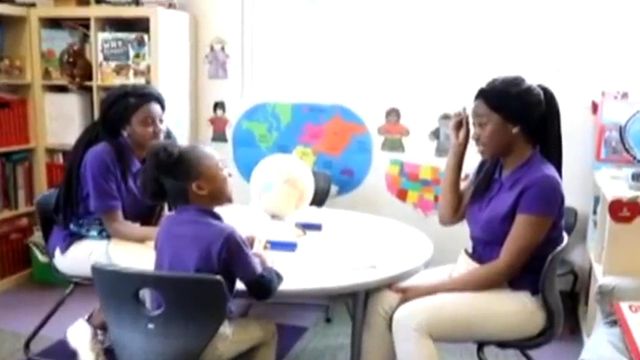Dozens of NC charter schools raked in PPP loans in addition to state funding
Forty-five public charter schools in North Carolina obtained a total of $28 million in forgivable federal loans last year in the early weeks of the pandemic that traditional public schools couldn't access.
Posted — UpdatedWRAL Investigates sorted through the U.S. Small Business Administration’s database of hundreds of thousands of Paycheck Protection Program loans approved last spring. The program was geared toward keeping businesses afloat and people on payrolls during widespread lockdowns, but nonprofits, religious entities and schools also qualified for loans.
In addition to the $28 million in PPP loans, North Carolina charter schools also received $37 million from federal pandemic relief funds that passed through the state. Traditional schools also received money from that fund to cover technology expenses and other pandemic-related costs, even though most schools across the state kept their doors shut for most of the past year.
"I would say it’s been a lifeline for them," Rhonda Dillingham, executive director of the North Carolina Association of Public Charter Schools, said of the PPP loans.
WRAL found that was true for some charter schools after reviewing hundreds of board meeting minutes from charters that received the loans.
At Invest Collegiate Transform in Charlotte, for example, board minutes in May show the school was facing a deficit of nearly $1million. One month later, a $1.1 million donation and $507,000 in PPP loans turned the school’s finances around.
WRAL emailed school leaders and board members more than a month ago for comment but never heard back.
In fact, only two of the several charter schools in the SBA's database of PPP loans that WRAL tried to contact responded, and both said they applied for, but didn’t receive, a loan.
Dillingham said fundraisers that normally help charter schools make up for what they don’t get from the state had to be canceled during the pandemic.
"The charter school law that we currently have does not allow for capital expenses in the per-pupil funding," she said. "That means, for about every dollar a district school gets, a public charter school gets about 70 cents."
But public schools use fundraisers for academic and athletic programs, and they weren't eligible to apply for PPP loans.
Public schools have received more per-pupil money than charter schools from the federal pandemic relief packages. The PPP loans helped close the gap for charter schools and, in some cases, even surpass it.
Tom Kelley, who specializes in nonprofit organizations at the UNC School of Law, said he doesn't like charter schools cashing in on two pots of money.
"In my opinion, I don’t think there’s any doubt that double-dipping is going on," Kelley said, questioning how the schools showed the loans were necessary to save jobs when they already received taxpayer money for salaries.
"It’s not clear to me how schools, charter schools, receiving that CARES Act money would be threatened by shedding, by losing, jobs. I don’t see how that would happen," he said. "So, my assumption is at least much of this PPP funding is going to arrive as a windfall."
Kelley said he doesn’t think charters should get PPP money, especially those run by corporations.
"I do find the double-dipping is somewhat problematic in that it creates a windfall that other traditional public schools don’t enjoy," he said. "I find it particularly problematic when we’re talking about charter schools that are being managed by for-profit corporations."
WRAL reviewed the records and found that argument, just like the lifeline argument, is legitimate.
Davidson Charter Academy in Lexington, for example, had a PPP loan approved for $319,000. Its application with the state shows ties to two other groups that also got PPP: CFA Classical Academies got $589,000, and Leaders Building Leaders got more than $42,000.
"I don’t necessarily think it’s right, and it’s to the disadvantage of traditional public schools, but there’s nothing unlawful about it, so far as I can see," Kelley said.
Dillingham said the schools aren't double-dipping.
"If a school applies and gets the PPP, they need it because they’ve taken a huge financial hit," she said.
Related Topics
• Credits
Copyright 2024 by Capitol Broadcasting Company. All rights reserved. This material may not be published, broadcast, rewritten or redistributed.






